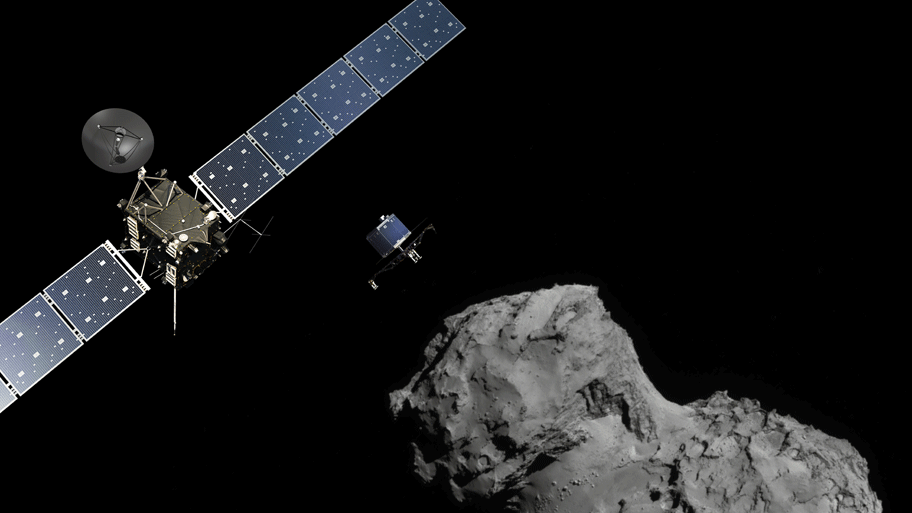We can land on comets. Why does everyday tech still suck?
If humans are so smart, why haven't we solved these tech traumas yet?

This week we've been marvelling at the images beamed back to Earth by Philae, the plucky little robot probe that's currently parked on the excitingly named Comet 67P/Churyumov-Gerasimenko.
The mission's even more impressive when you consider that in the 10 years it's taken Philae to reach its four-billion-mile target, we've seen astonishing advances in technology. And that's got us thinking. Surely if the tech of 2004 can send a robot four billion miles and parallel park it on a flying ball of rock, the tech of 2014 should have eradicated all kinds of annoyances by now? If we humans are hot stuff, why haven't we solved this little lot?
Making Wi-Fi that works
Many mobile phone contracts include a free subscription to someone else's wireless hotspot network, and that subscription never, ever works no matter how strong the signal or how up-to-date your mobile apps are. Maybe the hotspots are made of some kind of mysterious dark matter, or maybe they obey universal laws we humans simply can't comprehend. Or maybe it's that hotspot operators couldn't care less about supporting people who can't cancel their memberships. The truth is out there.
Making smartwatches that don't suck
Come on people, we've been trying this since the 1980s: how on Earth can we send robots billions of miles but we can't make a smartwatch that doesn't look crap and deliver decent battery life? Even the Apple Watch is going to disappoint on that front, especially at the high end: a four grand watch that you need to charge every day?
Getting Windows right
When Philae began its mission, Microsoft had Windows XP. When Philae landed, many people were so impressed by Windows XP's successors that they were still running Windows XP. Windows 7 only overtook its market share in 2011, and despite Microsoft's decision to remove support for the ageing OS and have all its users killed earlier this year, XP still has 17.18% market share of desktop OSes and what appears to be 100% of the market share for cash machine OSes.
Finishing software on time
Like Philae, we like nothing better than exploring far-flung locations - but unlike Philae, we have to download eleventy-three terabytes of crucial patches and infinitesimal improvements every time we try to play Alien: Isolation on our consoles. Which reminds us of an old Eddie Izzard gag: wouldn't it be great if, as a practical joke, the European Space Agency released Philae photos that appeared to show space aliens? Go on, ESA. You know you want to.
Solving battery problems
We have a battery problem here on earth: everything has gone mobile, and the advances in tech (and our demands for MOAR POWER) have wiped out the comparatively modest advances in battery tech. Philae has a bit of a battery problem too - it appears to be in a dark location, which isn't great for solar charging its backup battery - but let's get some perspective here: it's still working after travelling FOUR BILLION MILES, and its instruments being used on and off for the last five years. We can barely get our smartphones to last from our house to work and back again.
Get daily insight, inspiration and deals in your inbox
Sign up for breaking news, reviews, opinion, top tech deals, and more.
Writer, broadcaster, musician and kitchen gadget obsessive Carrie Marshall has been writing about tech since 1998, contributing sage advice and odd opinions to all kinds of magazines and websites as well as writing more than a dozen books. Her memoir, Carrie Kills A Man, is on sale now and her next book, about pop music, is out in 2025. She is the singer in Glaswegian rock band Unquiet Mind.
